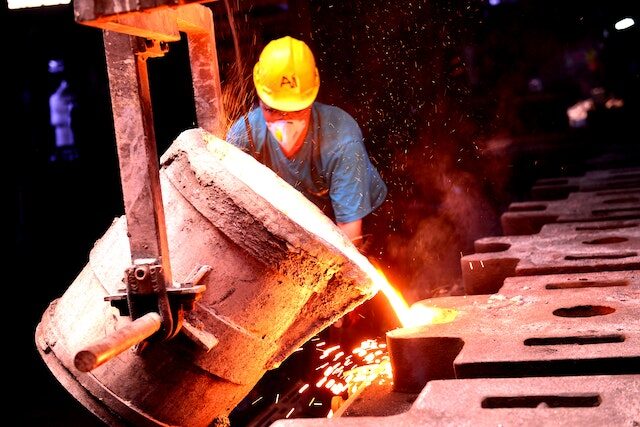Metal castings are not a commodity, and choosing the right supplier requires careful consideration. Choosing a facility based solely on price can lead to quality issues and wasted time.
A thorough hazard assessment helps identify all health and safety concerns associated with the casting process. Taking action to eliminate safety risks and improve materials handling will reduce daily costs that result from inefficient processes.
Experience
A metal casting foundry should be experienced in working with the alloys and materials required to meet your product requirements. They should thoroughly understand how to transform the engineering design into a quality cast with a high level of detail.
They should have a strong history of delivering on production schedules and lead times. They should be able to provide a quote that balances the purchase cost of the casting with delivery time and quality considerations.
Consider your priorities and be honest about which areas the supplier excels in versus where they could improve. For example, if you prioritize quality and customer service while they only excel in meeting the spec, you may not be happy with them.
Capabilities
The capacity of a foundry to meet the requirements of a particular specification must be established before making a purchase. Necessary levels of quality should be maintained to achieve lower prices, but reasonable requirements should be specified.
Using a supplier that does not have the necessary testing capabilities to ensure compliance could result in costly delays in delivery and rework. A good metal casting supplier at the casting facility Essex MA can provide a one-stop shop for testing, including non-destructive and mechanical tests.
Non-destructive testing, radiographic inspection, and ultrasonic testing are methods used to inspect a casting for internal defects that cannot be detected by visual inspection or destructive testing (which generally cuts the casting). A supplier should have all of these capabilities in-house so that you can save time and money on shipping costs and avoid costly rework.
Flexibility
When you choose a metal casting supplier, you should select one with the flexibility to accommodate your unique product requirements. This will save time and money in the long run.
A competent casting foundry can make virtually any part — including internal channels and holes — without significantly increasing costs. Castings can also be aesthetically pleasing, increasing value and product differentiation in competitive markets.
Most casting facilities have various value-added processes onsite in addition to foundry operations, making it difficult to determine energy usage. This skews industry estimates and results in inaccurate comparisons. Tacit energy analysis is recommended to capture accurate energy consumption. This will enable your metalcaster to work with you to develop a sustainable production process.
Reliability
Metal casting is one of the oldest manufacturing methods. It is used to manufacture complex solid and hollow designs that would be difficult or impossible to make using other processes. Replacing multiple parts with a single component can also save time and money.
Reliability is a quality that describes the extent to which a test score, measurement, or other attribute is predictable and consistent. For example, a medical thermometer is reliable because it measures the same temperature every time it is used. A reliable math test or research finding can be replicated over time and under different circumstances.
When requesting quotations for your metal casting project, consider all the provisions, including tooling requirements and tolerances. Also, confirm that your supplier has the proper certifications, such as ASME and Nadcap.
Safety
Metal casting is a very energy-consuming process, so the facilities must take special precautions. Burning is the most apparent safety issue, and choosing a foundry with proper burn protection systems is vital.
Other common issues include dust inhalation and heat stress, which can be extremely dangerous for employees working with molten metal. Lastly, excessive noise levels can damage employees’ hearing and prevent them from communicating effectively.
The choice of a foundry should also be based on the ability to accommodate any testing requirements your project may require. For example, some casting suppliers have in-house non-destructive and mechanical testing capabilities, while others outsource these services. Choosing a foundry with these capabilities in-house can cut costs and lead time.

